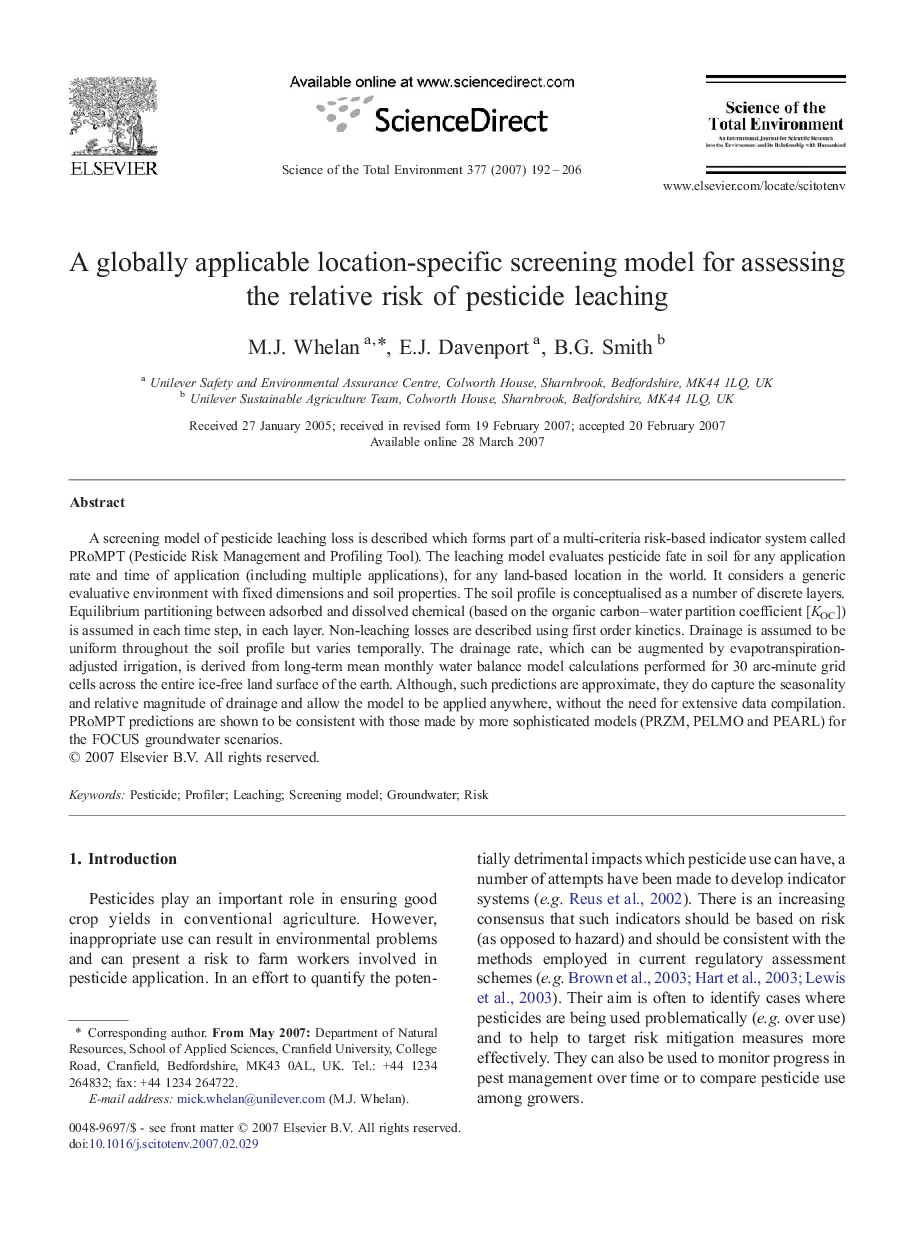| کد مقاله | کد نشریه | سال انتشار | مقاله انگلیسی | نسخه تمام متن |
|---|---|---|---|---|
| 4433421 | 1619953 | 2007 | 15 صفحه PDF | دانلود رایگان |

A screening model of pesticide leaching loss is described which forms part of a multi-criteria risk-based indicator system called PRoMPT (Pesticide Risk Management and Profiling Tool). The leaching model evaluates pesticide fate in soil for any application rate and time of application (including multiple applications), for any land-based location in the world. It considers a generic evaluative environment with fixed dimensions and soil properties. The soil profile is conceptualised as a number of discrete layers. Equilibrium partitioning between adsorbed and dissolved chemical (based on the organic carbon–water partition coefficient [KOC]) is assumed in each time step, in each layer. Non-leaching losses are described using first order kinetics. Drainage is assumed to be uniform throughout the soil profile but varies temporally. The drainage rate, which can be augmented by evapotranspiration-adjusted irrigation, is derived from long-term mean monthly water balance model calculations performed for 30 arc-minute grid cells across the entire ice-free land surface of the earth. Although, such predictions are approximate, they do capture the seasonality and relative magnitude of drainage and allow the model to be applied anywhere, without the need for extensive data compilation. PRoMPT predictions are shown to be consistent with those made by more sophisticated models (PRZM, PELMO and PEARL) for the FOCUS groundwater scenarios.
Journal: Science of The Total Environment - Volume 377, Issues 2–3, 15 May 2007, Pages 192–206